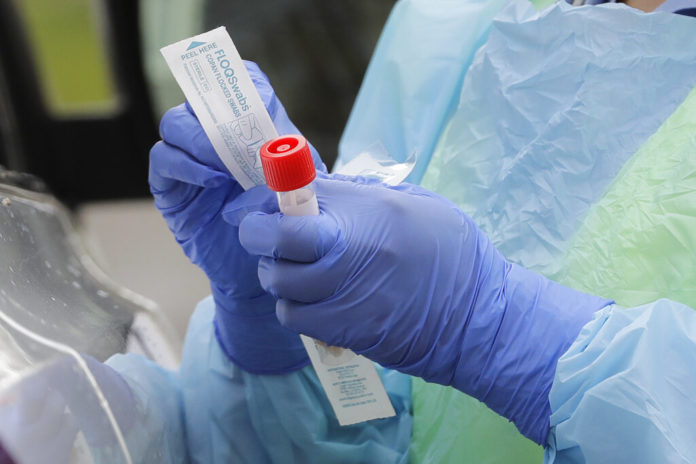Metro Phoenix’s first COVID-19 cases involving the omicron variant have been identified in six people, Maricopa County Department of Public Health officials said Monday.
Arizona health officials confirmed the state’s first case involving the omicron variant last Wednesday.
County officials said three separate clusters of cases were identified and include adults ranging in age from their late teens to their 60s with no prior international travel history. Most were fully vaccinated.
To date, no serious illness has been reported and no one has been hospitalized due to the omicron variant.
County health officials said all six people remain at home in isolation while recovering.
Meanwhile, on Monday, Arizona reported fewer than 3,000 new COVID-19 cases for the first time in nearly two weeks. The state coronavirus dashboard reported 2,391 additional confirmed cases, but there were no new virus-related deaths.
The lower figures might partially be attributed to a lag in reporting figures on the weekends. Still, the numbers are a marked drop. For the last 12 days, Arizona health officials had found more than 3,000 cases daily.
Now, the state’s pandemic total number of cases is 1,318,580. The number of deaths remains 23,040.
Hospitalizations for COVID-19 remained about the same with 2,688 patients as of Sunday. The number of hospitalized remains far below the pandemic peak of 5,082 last January.
Still, officials at one of Phoenix’s major hospital systems fear the patient volume will keep climbing.
Valleywise Health is seeing around the same number of COVID-19 infected patients as a year ago, Dr. Michael White said. It’s especially troublesome given the fact that vaccines are readily available.
“I was hopeful as the vaccine came forward that we would not see this again,” White said during a news briefing. “However this is reality. We are seeing this again.”
Valleywise’s 47 beds in its COVID-19 unit are full. There were eight more COVID-19 patients Monday having to stay in the emergency department. Around 95% of all patients were unvaccinated.
Staff are also feeling frayed treating a number of patients for non-COVID-19 illnesses, White added. Some elective surgeries — where the patient can wait four to six weeks — are being delayed.
Republished with the permission of the Associated Press.















